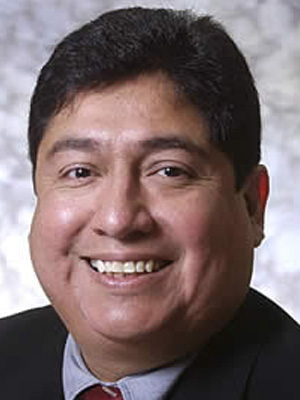2023-14
Reforming the Section 340B Drug Affordability Program to Ensure its Rebates Accompany the Patient
Sponsored by Rep. Louis Ruiz (KS)
Reported to the Caucus by the NHCSL Healthcare Task Force
Rep. Alma Hernández (AZ), Chair
Unanimously ratified by the Caucus on December 2, 2023.
WHEREAS, in 1992 Congress enacted Section 340B under the Public Health Service Act [1] to give relief from high drug costs to safety net providers with the understanding that 3 those lower costs would benefit patients in need; and,
WHEREAS, 340B’s covered-entity safety net providers include state funded hospitals and medical providers in low-income neighborhoods; [2] and,
WHEREAS, covered entities are able to buy eligible outpatient drugs at a discounted rate (upwards of 50 percent). Hospitals are able to choose how they spend the money they save, but the intent is that funds be reinvested into the communities the health center serves, providing needed services and medication for the underinsured, uninsured and indigent patient populations they treat; [3] and,
WHEREAS, in its first 13 years, the 340B program grew slowly (583 covered entities), but today 45% of all acute care hospitals participate in 340B (there were 2,600 hospitals participating in 340B in 2023 [4] and 12,700 total covered entities in 2020 [5]) making 340B the second largest federal prescription drug program totaling $44.8 billion in discounted program sales; [6] and,
WHEREAS, covered entities are also able to make contracts with pharmacies which allow pharmacies to distribute 340B prescriptions; [7] and,
WHEREAS, despite its laudable intent, the 340B program in its operation is not properly functioning as it should and around 62% of covered entity hospitals are not in medically underserved areas, [8] resulting in 340B benefits not targeting those they are meant for; [9] and,
WHEREAS, according to the Community Oncology Alliance, a non-profit organization dedicated to advocating for community oncology patients, the growth of the 340B program has been a powerful driver to facilitate hospital consolidation, increasing the cost of care as hospital outpatient departments are a more expensive site of service without meaningfully translating into improved care for vulnerable patients; [10] and,
WHEREAS, in its July 2023 report to Congress on Open Matters for Congressional Consideration, the General Accountability Office renewed its 2015 recommendation that to “protect beneficiaries from unwarranted financial burden… Congress should consider eliminating the incentive to prescribe more drugs or more expensive drugs than necessary to treat Medicare Part B beneficiaries at 340B hospitals;” [11] and,
WHEREAS, in its original full report, the GAO noted that “there were notable numbers of 340B hospitals that provided low amounts of [uncompensated and charity care with] 12 percent of 340B DSH hospitals… among the hospitals that reported providing the lowest amounts of charity care across all hospitals in GAO's analysis;” [12] and,
WHEREAS, limited oversight has allowed covered entities to use 340B for their gain. Between 2012 and 2019 Health Resources and Services Administration found that 546 covered entities distributed drugs to individuals who are not eligible patients, and 561 failed to maintain eligibility-related requirements such as oversight of their contract pharmacies; [13] and,
WHEREAS, on October 2023, the Health Resources and Services Administration (HRSA) which oversees 340B, was forced to issue Federal Register notice to “inform and remind stakeholders of the registration requirements for off-site, outpatient hospital facilities to participate in the 340B Drug Pricing Program” due to the current “added risk and complexity to HRSA’s ability to effectively oversee compliance in the 340B Program” which was exacerbated by pandemic flexibilities; [14] and,
WHEREAS, several policy actions have been proposed to reform 340B into a program that supports safety net providers in providing for low income individuals such as, but not limited to:
- Ensuring 340B prescriptions are offered to patients that need them the most at a discount,
- Updating the definition of 340B patient in order to properly serve those who need the assistance of the program,
- Updating contract pharmacy arrangements so contracted pharmacies are located in medically underserved areas or that serve a specific population,
- Preventing middlemen and for-profit entities from profiting from the program,
- Strengthening the requirements for covered entity to ensure they are serving medically underserved communities and are increasing access to affordable care,
- Creating a neutral claims data clearinghouse to keep 340B claims transparent and accountable,
- Requiring covered entities to report relevant information about their 340B participation such as costs of acquiring 340B drugs,
- Establishing set expectations regarding use of incremental revenue to serve vulnerable populations of patients, and compliance should be monitored through the statutory oversight authority of HRSA.
THEREFORE, BE IT RESOLVED that the National Hispanic Caucus of State Legislators supports the 340B program but calls for reforming its execution to better serve medically underserved communities: discounts should follow the patient, not be “awarded” to a hospital; and,
BE IT FURTHER RESOLVED that the National Hispanic Caucus of State Legislators urges Congress to robustly fund HRSA’s audit capabilities to ensure the nonprofit nature of 340B hospitals and to allow auditors to truly assess that those hospitals are providing 340B care to low-income individuals only, prevent middleman profits and ensuring that contracted pharmacies are located in medically underserved areas or serve a specific covered population; and,
BE IT FINALLY RESOLVED that the National Hispanic Caucus of State Legislators urges states to ensure that their contracts with private hospitals require the provision of health care services to low-income individuals, even those not eligible for Medicaid or Medicare, implementing robust compliance and transparency mechanisms.
THE HEALTHCARE TASK FORCE RECOMMENDED THIS RESOLUTION TO THE EXECUTIVE COMMITTEE FOR APPROVAL. THE EXECUTIVE COMMITTEE APPROVED THIS RESOLUTION AT ITS MEETING OF NOVEMBER 17, 2023. THE NATIONAL HISPANIC CAUCUS OF STATE LEGISLATORS AMENDED AND UNANIMOUSLY RATIFIED THIS RESOLUTION ON DECEMBER 2, 2023, AT ITS ANNUAL MEETING IN PHILADELPHIA, PENNSYLVANIA.
[1] “340B Drug Pricing Program- Background,” 340b Detailed Overview, (2021). Available at https://www.340bhealth.org/members/340b-program/overview/.
[2] Sec. 340B of the Public Health Service Act (Pub. L. 102-585), as amended by the Patient Protection and Affordable Care Act (Pub. L. 111-148), Health Care and Education Reconciliation Act (Pub. L. 111-152) and Medicare and Medicaid Extenders Act of 2010 (Pub. L. 111-309). Available at phs-act-section-340b.pdf (hrsa.gov)
[3] Community Oncology Alliance, COA 340B Drug Pricing Program Position Statement. Available at https://mycoa.communityoncology.org/education-publications/position-statements/coa-340b-drug-pricing-program-position-statement
[4] General Accountability Office (GAO), 340B Drug Discount Program: Information about Hospitals That Received an Eligibility Exception as a Result of COVID-19 (May 11, 2023). Available at https://www.gao.gov/products/gao-23-106095
[5] General Accountability Office (GAO), Drug Pricing Program: HHS Uses Multiple Mechanisms to Help Ensure Compliance with 340B Requirements (Dec 14, 2020). Available at https://www.gao.gov/products/gao-21-107
[6] Berkeley Research Group, LLC (2022), “340B Program at a Glance,” 340b Industry Roundtable. Available at https://media.thinkbrg.com/wp-content/uploads/2022/12/06082105/340B-Program-at-a-Glance-2022_clean.pdf.
[7] Department of Health and Human Resources, Federal Register / Vol. 75, No. 43, Notice Regarding 340B Drug Pricing Program—Contract Pharmacy Services § (2010). Available at 2010-4755.pdf (govinfo.gov)
[8] Xcenda, (2021). “340B and Health Equity: A Missed Opportunity in Medically Underserved Areas,” AmerisourceBergen. Available at https://www.xcenda.com/-/media/assets/xcenda/english/content-assets/white-papers-issue-briefs-studies-pdf/xcenda_issue_brief_340b_muas_nov2021.pdf.
[9] For a case study on how one covered entity failed to properly allocate funds see: Katie Thomas and Jessica Silver-Greenberg, How a Hospital Chain Used a Poor Neighborhood to Turn Huge Profits (The New York Times, Sept. 24, 2022). Available at https://www.nytimes.com/2022/09/24/health/bon-secours-mercy-health-profit-poor-neighborhood.html
[10] Community Oncology Alliance, COA 340B Drug Pricing Program Position Statement. Available at https://mycoa.communityoncology.org/education-publications/position-statements/coa-340b-drug-pricing-program-position-statement
[11] General Accountability Office (GAO), Open Matters for Congressional Consideration, p 33 (July 25, 2023). Available at https://www.gao.gov/assets/gao-23-106837.pdf (citing GAO, Medicare Part B Drugs: Action Needed to Reduce Financial Incentives to Prescribe 340B Drugs at Participating Hospitals (Jun 05, 2015). Available at https://www.gao.gov/products/gao-15-442).
[12] GAO, Medicare Part B Drugs: Action Needed to Reduce Financial Incentives to Prescribe 340B Drugs at Participating Hospitals (Jun 05, 2015). Available at https://www.gao.gov/products/gao-15-442
[13] General Accountability Office (GAO), Drug Pricing Program: HHS Uses Multiple Mechanisms to Help Ensure Compliance with 340B Requirements (Dec 14, 2020). Available at https://www.gao.gov/products/gao-21-107
[14] Available at https://www.govinfo.gov/content/pkg/FR-2023-10-27/pdf/2023-23702.pdf


